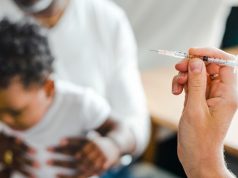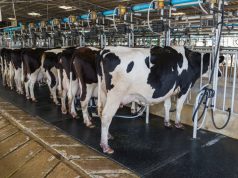Current vaccine projected to be more effective in 2018 U.S. flu season vs 2017 Australian flu season
FRIDAY, Dec. 15, 2017 (HealthDay News) — A novel bioinformatics approach can predict vaccine effectiveness for the influenza season, and indicates that the current vaccines are likely to be effective against H3N2 flu viruses in the U.S. 2017/2018 flu season, according to research published online Nov. 29 in F1000 Research.
Slobodan Paessler, D.V.M., Ph.D., from the University of Texas Medical Branch, and Veljko Veljkovic, Ph.D., from Biomed Protection, both in Galveston, Texas, used a bioinformatics platform to predict vaccine effectiveness for the 2017/2018 influenza season in the United States. The hemagglutinin HA1 region of 251 and 113 human H3N2 viruses collected in Australia and the United States from July to September 2017 were analyzed. The informational spectrum method-based phylogenetic analysis of H3N2 viruses was performed to serve as a base for predicting vaccine effectiveness.
The researchers found that analyses of Australian viruses generated two clusters; the vaccine virus was placed in the smaller group. As a result, the vaccine was predicted not to be efficient against most Australian H3N2 viruses in the 2017 flu season; low vaccine effectiveness was reported in Australia in the 2017 flu season in accordance with this prediction. The U.S. H3N2 viruses were also grouped into two clusters, but the vaccine virus was placed in the largest cluster encompassing 71 percent of analyzed viruses. Consequently, the vaccine effectiveness is expected not to be suboptimal in the United States.
“In summary, the presented results suggest that (i) the influenza vaccine will be effective against H3N2 viruses in the beginning of the flu season 2017/2018 in the United States; (ii) it will be necessary to continue monitoring of evolution of H3N2 viruses during the flu season; and (iii) the vaccine with mutation L194P may have lower vaccine effectiveness,” the authors write.
Copyright © 2017 HealthDay. All rights reserved.








